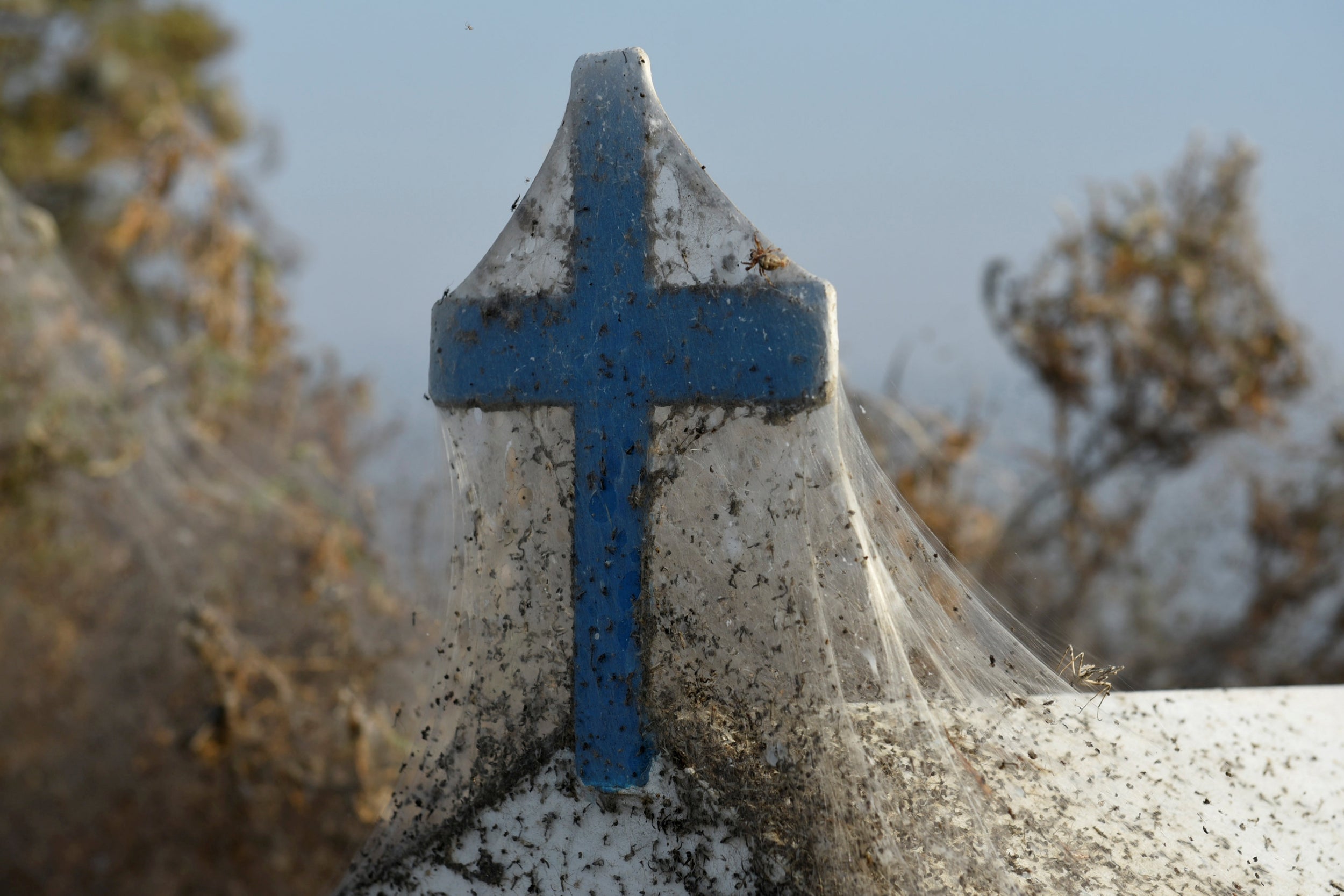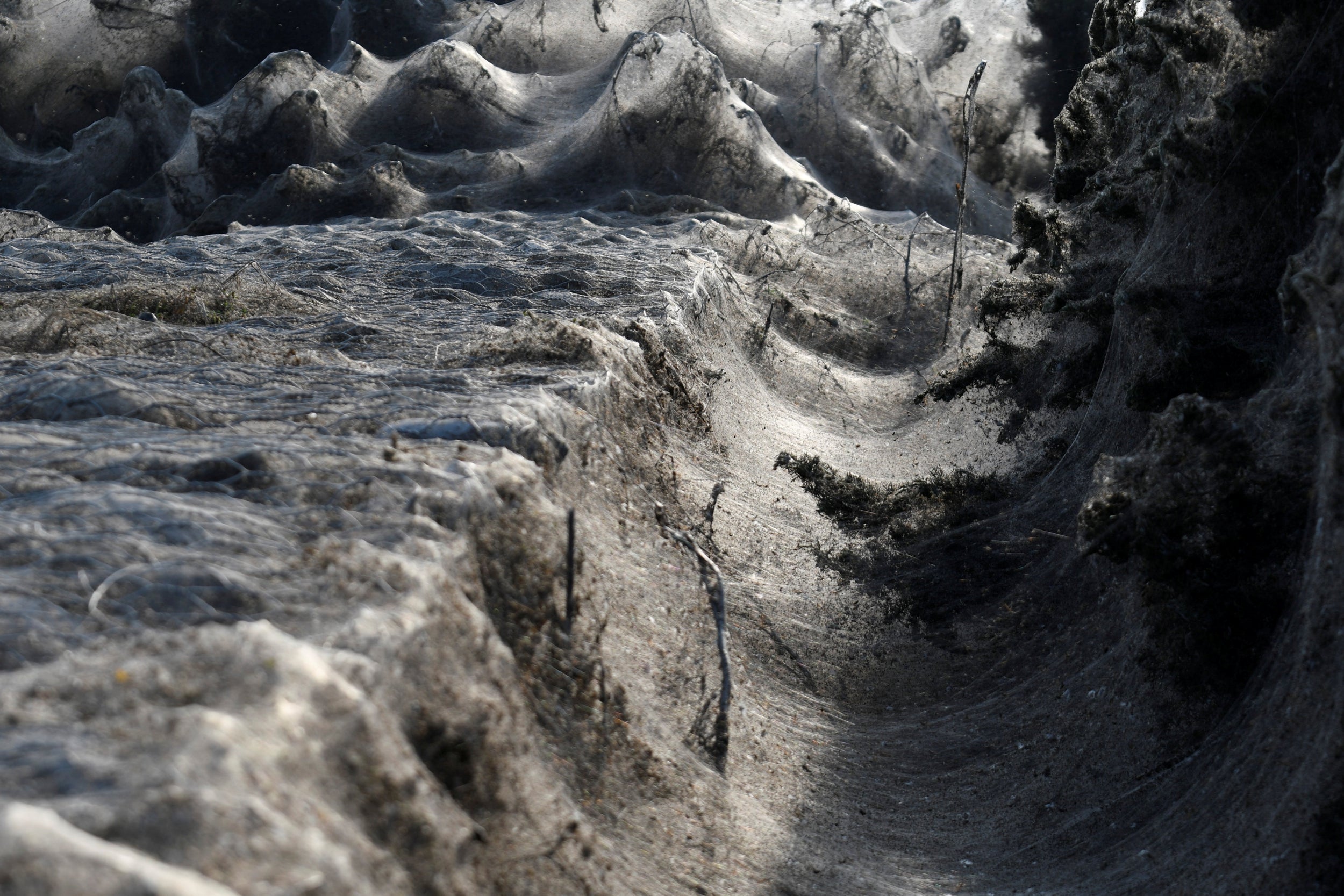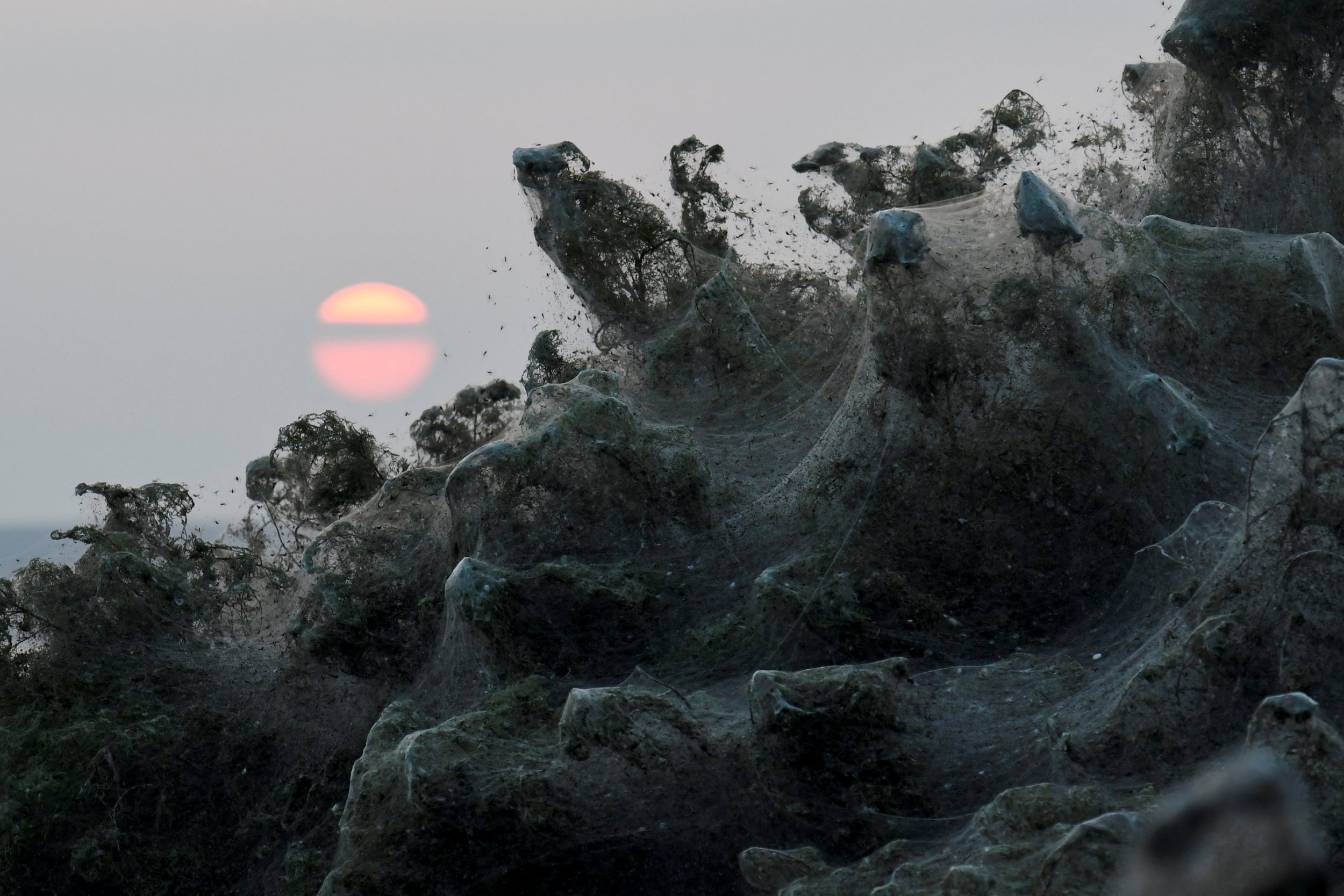Giant 1,000m spider web covers Greek lake
'Weather conditions are ideal for them to multiply,' a biologist says

Your support helps us to tell the story
From reproductive rights to climate change to Big Tech, The Independent is on the ground when the story is developing. Whether it's investigating the financials of Elon Musk's pro-Trump PAC or producing our latest documentary, 'The A Word', which shines a light on the American women fighting for reproductive rights, we know how important it is to parse out the facts from the messaging.
At such a critical moment in US history, we need reporters on the ground. Your donation allows us to keep sending journalists to speak to both sides of the story.
The Independent is trusted by Americans across the entire political spectrum. And unlike many other quality news outlets, we choose not to lock Americans out of our reporting and analysis with paywalls. We believe quality journalism should be available to everyone, paid for by those who can afford it.
Your support makes all the difference.A lake in northern Greece has been transformed into a scene out of horror movie after it was cloaked in a 1,000-metre web spun by a huge swarm of spiders.
Eerie pictures of Lake Vistonida show roadside bushes, fences and small trees completely covered by the cobwebs.
Experts say that the rare phenomenon was a result of hundreds of thousands of Tetragnatha, known as stretch spiders, gravitating to the area in unseasonably warm weather.
The arthropods are known to build webs near watery habitats, with some species even said to be able to walk on water.

A rise in the mosquito population has also boosted the number of spiders looking to feed on the insects while weaving their nests for mating.
“It’s caused by an overpopulation of spiders…there is an abundance of food available,” local environmental park biologist Euterpe Patetsini told Alpha TV.
Biologists warned that the web will spread further as higher temperatures and rising humidity provided the ideal fertile growth conditions for the spiders.
“Weather conditions are ideal for them to multiply,” Ms Patetsini added.

A similar occurrence happened in Greece last month when scorching temperatures led to the emergence of an incredible 1,000-foot spider web covering the whole eastern side of a lagoon in Aitoloko.
Subscribe to Independent Premium to bookmark this article
Want to bookmark your favourite articles and stories to read or reference later? Start your Independent Premium subscription today.
Join our commenting forum
Join thought-provoking conversations, follow other Independent readers and see their replies
Comments